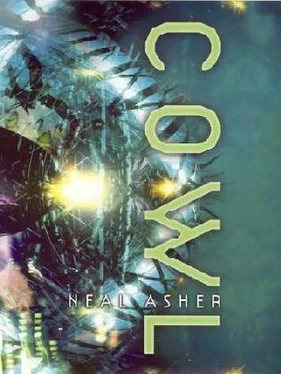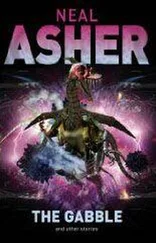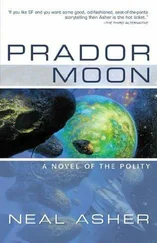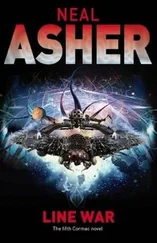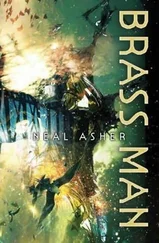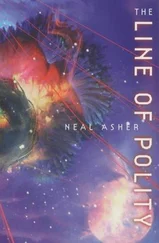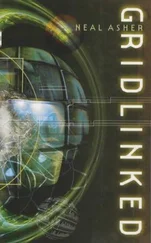Neal Asher - Cowl
Здесь есть возможность читать онлайн «Neal Asher - Cowl» весь текст электронной книги совершенно бесплатно (целиком полную версию без сокращений). В некоторых случаях можно слушать аудио, скачать через торрент в формате fb2 и присутствует краткое содержание. Год выпуска: 2004, Жанр: Фантастика и фэнтези, на английском языке. Описание произведения, (предисловие) а так же отзывы посетителей доступны на портале библиотеки ЛибКат.
- Название:Cowl
- Автор:
- Жанр:
- Год:2004
- ISBN:нет данных
- Рейтинг книги:4 / 5. Голосов: 1
-
Избранное:Добавить в избранное
- Отзывы:
-
Ваша оценка:
- 80
- 1
- 2
- 3
- 4
- 5
Cowl: краткое содержание, описание и аннотация
Предлагаем к чтению аннотацию, описание, краткое содержание или предисловие (зависит от того, что написал сам автор книги «Cowl»). Если вы не нашли необходимую информацию о книге — напишите в комментариях, мы постараемся отыскать её.
In the far future, the Heliothane Dominion is triumphant in the solar system, after a bitter war with their Umbrathane progenitors. But some of the enemy have escaped into the past, intent on wreaking havoc across time. The worst of these is Cowl, an artifically forced advance in human evolution.
Cowl — читать онлайн бесплатно полную книгу (весь текст) целиком
Ниже представлен текст книги, разбитый по страницам. Система сохранения места последней прочитанной страницы, позволяет с удобством читать онлайн бесплатно книгу «Cowl», без необходимости каждый раз заново искать на чём Вы остановились. Поставьте закладку, и сможете в любой момент перейти на страницу, на которой закончили чтение.
Интервал:
Закладка:
His sodden cloak flapping in the gale, he gripped the safety ropes tightly as he edged along the gantry above the rowers. It was then, in the howling night, that lightning struck the mast and leapt down to the prow with a sound like mountains breaking. Tacitus went down on his knees, thinking this must be the end of him. Behind he could hear some of his men shouting prayers at the storm. Looking ahead again, he kept blinking to try and clear his vision, for surely he had seen something looming there out of the night, but then he saw only smouldering wood and sylphs of flame. He continued forging ahead until on the foredeck he found wreckage and the bodies of two of his men, their armour smoking and their skin blackened. This was a cursed voyage, he knew that now. Then his gaze fell upon the strange object cleaving to the wooden rail like a burr.
It was a vambrace, he knew it at once. It was a gift from Mithras for some battle yet to come. He reached out to grab it and yelled as its thorned surface cut into his hand. A big wave hit the side of the galley and, swamped in water, the galley slaves screamed and struggled. Falling down, Tacitus held onto the object, and it pulled from the rail. Without hesitation he thrust his arm into it. Agony, and a deep gnawing pleasure that was almost sexual. Blood poured from his arm and the vambrace closed about it and bonded to him. In only minutes it was firmly in place and his blood washed away by the sea and the rain. He held his arm up in a fist salute to his men at the stern of the ship. Then the jealous god Neptune sent one of his monsters against the ship.
The giant serpent rose up out of the sea, the great loop of its body curving up into hazy night, then its eyeless head and awful vertical maw turned and slammed down on the edge of the galley. Tacitus was again knocked off his feet. Struggling up and stumbling to an inner guard rope, he looked down and saw that the monster had taken out the side of the ship and was now feasting on the slaves. The inner parts of its mouth revolving like some engine, it drew them in, screaming, by their chains. There was no question that the ship would go down, so perhaps this was the battle he was being called to. He drew his gladius and leapt down into the chaos. Knocking aside those begging him in pidgin Latin to release them, and grabbing at him in desperation, he made his way to the horror that was chewing on the ship. He raised his weapon and drove it into a wall of flesh. Once, twice, but seemingly to no effect. Then a tentacle snapped out of darkness beside him and knocked him past a revolving hell of teeth and out into the storm. He struck a scaled flank that lacerated his legs as he fell past it, and then he was down into the sea, still clutching his gladius. He could not swim and he prepared himself for death, relaxed for it. And something took him away from the storm, into some nether hell, then out into bright sunlight.
Tacitus fell face first onto a soft surface, coughed and gasped as he fought for breath, then hauled himself upright and turned, ready to attack the figures that loomed over him. Then, in the presence of gods, he went down on his knees, his blood leaking into briny sand.
‘So this is the torbearer,’ said the tall golden woman in her strange white clothing. Tacitus did not understand the words then, but the time would come when he did.
The man, who had to be Apollo, said bitterly, ‘The galley went down—that was always a matter of historical record. The beast didn’t cause any paradox it couldn’t sustain by eating everyone on board.’
The man now reached down, grabbed Tacitus by the shoulder, and with infinite ease, hauled him to his feet. In the Roman’s native Latin he said, ‘You will help us to better understand that thing on your arm, before it takes you on your way again.’
‘Thank you, Lord… for saving me,’ Tacitus replied, bowing his head.
‘You may yet wish it otherwise,’ the woman told him.
Tacitus did wish it otherwise when these beautiful violent people learnt all they could from him with their strange questions and stranger engines. And when they then paralysed him and probed him and tried to take the god’s vambrace from his arm. Evidently failing in this endeavour, they freed him, handed back his sword, and told him to enjoy his journey to hell. It was a journey he could never have imagined—the time he spent with them being a comparatively harmless interlude—and throughout it he came to understand what the woman really meant.
12
Two Heliothane on Station Seventeen:
‘The Engineer wouldn’t let me see the recording from the internal security system—all we managed to get out before some sort of temporal barrier shut off all communication with the facility.’
‘Brother, I want to know.’
‘Goron’s been otherwise occupied, trying to push his project, so I managed to break into the system…’
‘What happened?’
‘Cowl’s creature killed Astolere.’
‘That can’t be… the amniotic tank was supposed to vent onto the surface of Callisto, where the beast would have died.’
‘That didn’t happen.’
‘Then the creature must be destroyed.’
‘There’s more than that.’
‘Show me.’
‘What is that?’
‘Some kind of feeding mouth that can be extruded from the main body. It wasn’t there before.’
‘That glass should have been able to withstand any force the creature could exert.’
‘Yeah, does that include displacing parts of its molecular structure through time so that those parts aren’t even in the same location?’
‘Scan shows this?’
‘Damned right it does.’
‘Cowl does not try to help her.’
‘No, he just allows it to consume our sister. She was the brightest and best of us all, and though she was there to supervise the shutdown, she was perhaps, excepting the failed preterhuman, Cowl’s greatest advocate.’
‘Then Cowl must die.’
Engineer Goron gazed fondly upon the Jurassic, where giants were demolishing a forest to fill their titanic ever-hungry stomachs. Even with the damping fields of Sauros operating, it was possible to feel the vibration of their gargantuan progress—what palaeontologists of Tack’s time gave the overblown term ‘dino-perturbation’. This herd of camarosaurs, though impressive, was nothing to what he yet had a good chance of seeing, for he had arranged for Sauros to come out in this specific locale: where brachiosaurs roamed. He could also have aimed to bring them out twenty million years later, in the time of the seismosaurs, but conditions had been optimum for this time and place, and he doubted he would have got that one past Vetross. Goron also hoped that when Tack returned there would be a chance for the twenty-second-century primitive to view these creatures along with him, as Tack, stupid in ways Goron could not even conceive, seemed to possess an appreciative awe of these giants that Goron’s fellows did not.
‘What is it, Vetross?’ He’d spied her edging towards him. ‘More calculations for me to check? More energy measures for me to approve? I appointed you as my second for a good reason, you know.’
‘It’s coming,’ Vetross replied.
Goron turned towards her and read the fear in her expression. This moment had been inevitable as soon as they had begun the push. Cowl would not countenance them getting close, without attacking. And attacking meant only one thing.
‘On our time?’
‘Ten hours. It’s pushing up the slope towards our Carboniferous, otherwise it would not retain the energy to bring enough of itself to bear. We’ve got travellers located back every fifty million years. Canolus slowed it with a neutron warhead quarter-slope relative to our Silurian, but while he recovered ground, it got him in transit.’
Читать дальшеИнтервал:
Закладка:
Похожие книги на «Cowl»
Представляем Вашему вниманию похожие книги на «Cowl» списком для выбора. Мы отобрали схожую по названию и смыслу литературу в надежде предоставить читателям больше вариантов отыскать новые, интересные, ещё непрочитанные произведения.
Обсуждение, отзывы о книге «Cowl» и просто собственные мнения читателей. Оставьте ваши комментарии, напишите, что Вы думаете о произведении, его смысле или главных героях. Укажите что конкретно понравилось, а что нет, и почему Вы так считаете.
